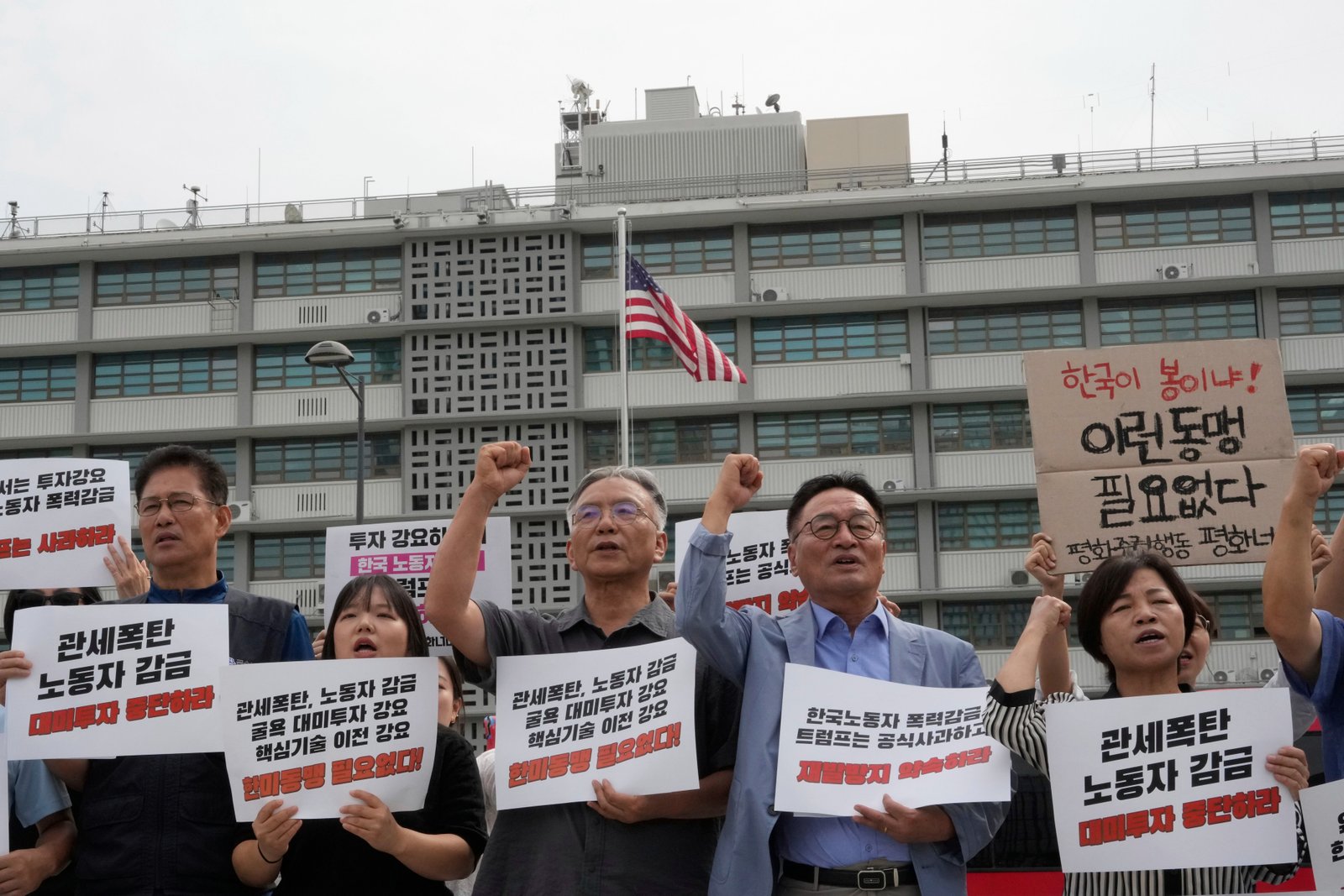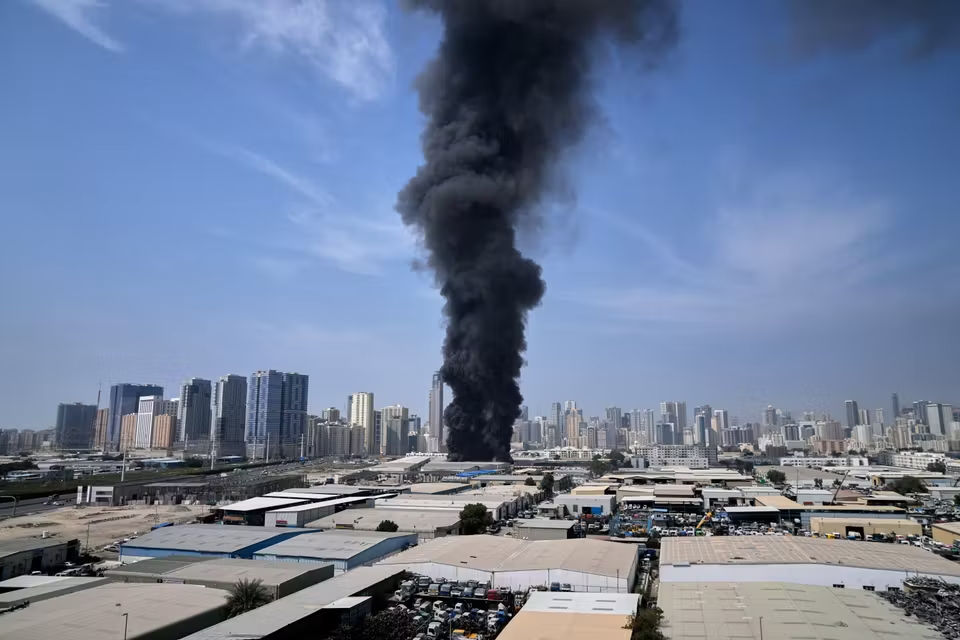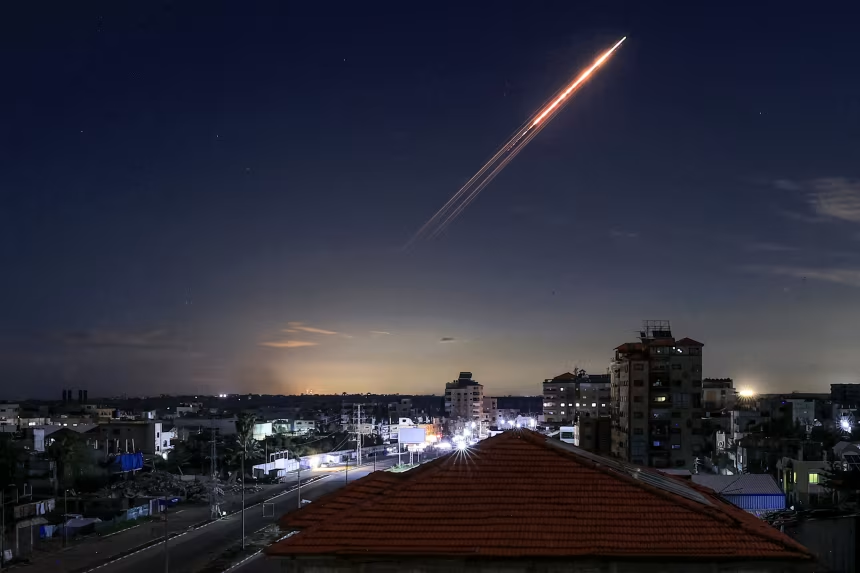A charter plane from South Korea left for the United States on Wednesday to bring back South Korean workers detained during a major immigration raid in Georgia last week.
The raid, carried out on September 4 at a battery factory under construction at Hyundai’s large U.S. plant, targeted 475 workers, over 300 of whom were South Korean nationals. U.S. authorities released video showing some workers shackled with chains around their hands, ankles, and waists, prompting outrage and a sense of betrayal across South Korea, a key U.S. ally.
South Korea’s government later announced it had reached an agreement with U.S. officials for the release of the detained workers. Footage from Korean TV showed a Korean Air Boeing 747-8i taking off from Incheon International Airport near Seoul. The Foreign Ministry said it is negotiating with U.S. authorities to allow the plane to return home with the released workers as soon as possible, though an unspecified issue delayed immediate departure.
Currently, the workers are held at an immigration detention center in Folkston, southeast Georgia. Reports indicate they will be moved to Atlanta to board the charter flight home. South Korean officials emphasized that the goal is “voluntary” departures rather than deportations, which could bar them from returning to the U.S. for up to ten years.
The Georgia raid was the largest by the U.S. Homeland Security agency to date and reflects a broader push for mass deportations. The battery plant, a joint venture between Hyundai and LG Energy Solution, is one of more than 20 industrial sites being built by South Korean companies in the U.S. Many South Koreans view the raid as a national embarrassment, especially coming just ten days after a high-level summit in Washington between South Korean President Lee Jae Myung and U.S. President Donald Trump.
U.S. authorities said some detained workers had entered the country illegally, while others were on expired visas or short-term visitor visas that prohibited work. South Korean experts and officials, however, criticized the U.S. for failing to create a visa system to accommodate skilled workers needed to launch major industrial projects, even as Washington encourages South Korean investment.
Most detained workers were employed by LG Energy Solution. The company instructed its South Korean employees in the U.S. on B-1 or B-2 visas not to report to work until further notice and asked those on the Electronic System for Travel Authorization (ESTA) to return home immediately.
During a visit to Washington, South Korean Foreign Minister Cho Hyun met with executives from Hyundai, LG, and Samsung. Cho stated that officials are in active discussions with U.S. lawmakers about possible legislation to create a separate visa quota for South Korean professionals working in the U.S.
President Trump defended the raid, saying the workers “were here illegally” and emphasizing that U.S. citizens must be trained for specialized roles, such as battery and computer manufacturing. Atlanta immigration attorney Charles Kuck, representing four of the detained South Koreans, noted that no U.S. company manufactures the specific machines used at the Georgia plant, requiring foreign specialists to install or repair equipment—a process that would take three to five years to train domestic workers.
The U.S.-South Korea military alliance, forged during the 1950–53 Korean War, remains broadly supported by the public, with thousands of U.S. troops stationed in South Korea and Japan to maintain regional security.
In a Cabinet Council meeting on Tuesday, President Lee said he felt “big responsibility” over the raid and pledged to work with the U.S. to ensure South Korean business operations in the U.S. are not unfairly affected in the future. Officials also stressed ongoing efforts to prevent similar incidents through improved visa systems and closer bilateral coordination.
The Georgia raid has stirred public and diplomatic concern but stops short of triggering major retaliation. Analysts note it could, however, create friction between the longtime allies as U.S. immigration enforcement intensifies.







